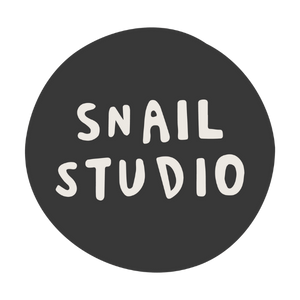Notice 🗞️ Slow News Day #28
Getting into the detail of Radical Honesty, drinking Crankhouse Coffee, and cantering to a wonderful album by the moss.

Hey,
When you experience an experience, it comes and goes. When you resist experiencing an experience, it persists. And the major form of resisting your experience is by thinking. If you're trying to think your way around things, what you first need to do is stop thinking and feel your way through things.
Christmas chats, for me, were dominated by Radical Honesty. Interestingly, this was almost exclusively with my friends and Bex’s family, not my own family. The last hurdle. The final boss. The site of original dishonesty. Or something like that, I don’t know, ask Sigmund Freud.
Anyway, I wanted to bring the spotlight back to RH after Slow News Day #24 and feeling like I couldn’t explain what it’s all about to my friends over the last few weeks. This is my attempt at a second, third, and fourth explanation.
Radical Honesty (not brutal honesty) gets described in a few different ways, but most common and attractive to me are: “a walking meditation” and “a noticing and reporting practice”. Neither of which sounds like they have much to do with honesty… so what’s the deal? I’ll turn to the titular book, written by Dr Brad Blanton, to get a bit clearer on what this honesty business is all about.
Blanton is a firebrand kind of writer—I read his words and imagine he’s in desperate need of an editor—but his inimitable style becomes pretty empowering after a while. Case in point: “the stress that kills most of the population comes from people being too hard on themselves when they don’t live up too their own imaginings about how other people think they should behave.”
“The mind is a jail made out of bullshit”, he posits. Pretty much all of us are “overgrown adolescents with super-critical minds who can’t stop judging and criticizing themselves and moralizing to other people”. We live our lives in our heads and “make certain assumptions about the world and we become attached to those assumptions.” Radical Honesty, then, is about “letting up on the demand that the world, including the demander, be other than what it is”.
So much of the crap we put ourselves through—stress, arguments, fear—is little more than on a bunch of ideas we’ve generated in our heads, based on sensations we feel in our bodies and how we relate them to previous experiences. There’s the world we’re living in and experiencing, then there’s the world in our head—the world as we think we know it. We confuse the two and cause ourselves a lot of grief as a result.
In the workshop I attended, we practiced a bunch of activities—and central to almost all of them was trying to check in with our body. We’d tell the truth about something (e.g. something we notice about another person, or sharing a secret we wouldn’t normally tell a group of strangers) and report what we felt in our body. Staying with my physical experience, noticing how it changed, and reporting on it kept me out of my head and away from the stories I would otherwise write and imagine. Once I got out of my head and into my body, I learned that all the bullshit I worried about was… bullshit. Even more surprisingly, it all moves on pretty quickly.
Radical Honesty is immensely intimate and has an astonishing connective power when facilitated properly with willing participants. And even outside of a workshop setting, it feels good—even if it’s not as smooth.
I guess the big distinction that a lot of people appreciate is that it’s not just about telling someone they’ve got a stupid haircut and ugly shoes, but instead being honest about your own experience and being honest that your judgements, the bullshit in the head, are exactly that—your own bullshit. Once you acknowledge that, you can get out of your own way and live a little easier.
If it’s caught your attention, as it’s seemed to with many of my friends, dig into it further. I can't recommend it enough. Depending on how committed you are, you could go in order of:
▶️ Watching some videos on the Radical Honesty YouTube channel
📚 Reading the book (sorry about the Amazon link, it’s not on Bookshop)
💻 Attending a free online workshop
🎫 Attending a weekend workshop
“Telling the truth, after hiding out for a long time, reopens old wounds that didn’t heal properly. It often hurts a lot. It takes guts. It isn’t easy. It is better than the alternative.”

Slow down guide
Need a little help moving slower?
Ease your way out of Friday afternoon with this newsletter, a nice cup of something, and a little background music. Steal my setup if you aren't sure where to start.
After I press send, I’m going to stop writing. This has been a long one. We fly to Madeira tomorrow for some winter sun and more coliving, so I’m finishing off the bag of Crankhouse’s Cocatu AA that Bex bought me for Christmas. It's a total beauty—it could have been a Christmas edition, with its beautiful boozy, fruity depth. Sadly, it’s sold out online. Pop into the cafe, if you have the chance, to see if there’s any left. Otherwise, you’ll just have to settle for one of the different and equally amazing coffees Dave’s roasted.
Listen to (Haunted) Basement by the moss, while you’re at it. I’ve been playing it non-stop—proper power rock vocals and a nice familiar sound behind it that touches the occasional bluesy note. I just can’t get enough of his vocal tone. The rest of the album (Kentucky Derby) is equally good and amusingly equine-themed, with a few interesting genre shifts thrown in—some ska-like drums, some more bluesy tracks.
Take it easy,

You just read issue #28 of Slow News Day. You can also browse the full archives of this newsletter.